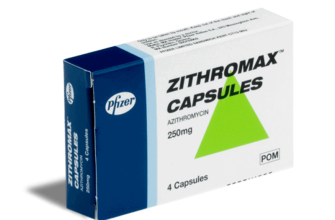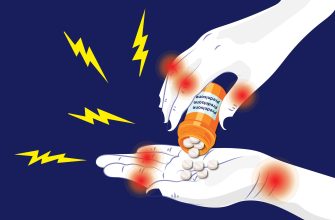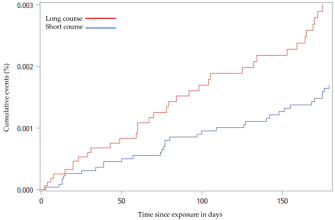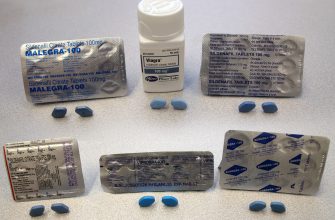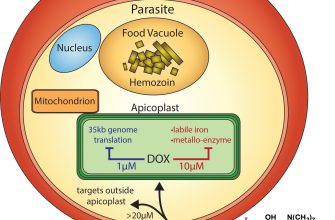No, Tylenol does not contain aspirin. Tylenol, known generically as acetaminophen, is distinct from aspirin, which is a nonsteroidal anti-inflammatory drug (NSAID). While both medications alleviate pain and reduce fever, they operate through different mechanisms in the body.
Those looking for pain relief should choose Tylenol if they need to avoid aspirin due to allergies, stomach sensitivity, or specific medical conditions. Aspirin might lead to gastrointestinal issues in some individuals, so opting for acetaminophen can provide a safer alternative.
It’s important to read labels carefully, as some combination medications may include both acetaminophen and aspirin. Always consult a healthcare professional if you’re unsure which option is best for your needs.
- Does Tylenol Contain Aspirin?
- Understanding Tylenol Composition
- Acetaminophen vs. Aspirin
- Dosage and Safety
- What is Aspirin and How Does it Work?
- Comparing Tylenol and Aspirin: Key Differences
- Side Effects and Risks
- Usage Recommendations
- Common Uses of Tylenol and Aspirin
- Potential Side Effects of Tylenol and Aspirin
- Who Should Avoid Aspirin?
- Mixing Tylenol with Other Medications
- Safe Combinations
- Medications to Avoid
- Consulting Healthcare Professionals: When and Why
- Common Scenarios for Consultation
- The Importance of Clear Communication
Does Tylenol Contain Aspirin?
No, Tylenol does not contain aspirin. Its active ingredient is acetaminophen, which is distinct from aspirin.
Acetaminophen effectively reduces pain and fever but does not have the anti-inflammatory properties that aspirin offers. This difference can be important for individuals who are sensitive to or need to avoid aspirin for medical reasons.
When choosing between Tylenol and aspirin, consider your specific symptoms and any existing health conditions. If you require anti-inflammatory effects, aspirin may be the better option. For straightforward pain relief without the gastrointestinal side effects associated with aspirin, Tylenol is preferable.
Always follow the recommended dosage instructions and consult a healthcare provider for personalized advice, especially if you are taking other medications or have underlying health issues.
In summary, when selecting a pain reliever, remember that Tylenol and aspirin serve different purposes and contain different active ingredients.
Understanding Tylenol Composition
Tylenol does not contain aspirin. Its active ingredient is acetaminophen, which differs significantly from aspirin in both function and chemical structure. Acetaminophen is effective for pain relief and reducing fever. Unlike aspirin, it doesn’t have anti-inflammatory properties and is generally gentler on the stomach.
Acetaminophen vs. Aspirin
Acetaminophen is often recommended for people who cannot take aspirin due to allergies or gastrointestinal issues. It is a safer alternative for children, as aspirin use in young individuals is associated with Reye’s syndrome, a serious condition.
Dosage and Safety
Always follow the recommended dosage for acetaminophen to avoid the risk of liver damage. Consult a healthcare professional if you’re unsure about combining Tylenol with other medications, especially if they contain acetaminophen. Understanding the composition of Tylenol helps you make informed choices regarding your pain relief options.
What is Aspirin and How Does it Work?
Aspirin, or acetylsalicylic acid, is a widely recognized medication used to relieve pain, reduce inflammation, and lower fever. It belongs to a class of drugs known as non-steroidal anti-inflammatory drugs (NSAIDs). Aspirin works by inhibiting the production of certain chemicals in the body called prostaglandins, which play a key role in causing pain, fever, and inflammation.
When you take aspirin, it enters your bloodstream and travels to areas of discomfort or inflammation. By blocking the enzyme cyclooxygenase (COX), aspirin reduces the synthesis of prostaglandins. This action helps soothe headaches, muscle aches, and other types of discomfort.
Aspirin also has antiplatelet properties, meaning it can prevent blood cells called platelets from clumping together. This is particularly beneficial in lowering the risk of heart attacks and strokes, as it helps maintain normal blood flow. Many doctors recommend low-dose aspirin for individuals at risk of cardiovascular issues.
While aspirin is available over-the-counter, using it should be approached with some caution. Potential side effects include gastrointestinal irritation and increased bleeding risk. Always consult with a healthcare professional before starting regular aspirin use, especially for long-term purposes.
Comparing Tylenol and Aspirin: Key Differences
Tylenol contains acetaminophen, while aspirin is a nonsteroidal anti-inflammatory drug (NSAID) that includes acetylsalicylic acid. These ingredients lead to different mechanisms of action in the body. Acetaminophen primarily reduces pain and fever by acting on the brain, making it suitable for those seeking relief without gastrointestinal irritation. Aspirin, on the other hand, reduces inflammation, pain, and fever, affecting both the brain and the site of occurrence. This makes aspirin more effective for inflammatory conditions.
Side Effects and Risks
Tylenol is generally easier on the stomach, but high doses can lead to liver damage. Regular use requires monitoring, especially in individuals with liver issues. Aspirin can cause gastrointestinal bleeding and ulcers, particularly with prolonged use. Aspirin is also contraindicated for children with viral infections due to the risk of Reye’s syndrome.
Usage Recommendations
For those with heart conditions or risks of clotting, aspirin may be recommended for its blood-thinning properties. For simple headaches or fever, Tylenol is often preferred due to its safety profile. Always consult with a healthcare provider before starting or combining these medications to ensure the safest and most effective choice for your needs.
Common Uses of Tylenol and Aspirin
Tylеnol is primarily used for pain relief and reducing fever. It effectively alleviates headaches, muscle aches, arthritis, toothaches, and menstrual cramps. For those seeking an option that doesn’t cause stomach irritation, Tylenol is gentle on the gastrointestinal tract.
Aspirin serves various purposes, including pain relief, anti-inflammatory effects, and fever reduction. It is widely used to relieve headaches, muscle pain, and even menstrual cramps. Additionally, patients often take low-dose aspirin to help prevent heart attacks and strokes due to its blood-thinning properties.
Both medications can reduce fever, making them suitable choices during illness. Always consult a healthcare provider to determine the ideal option according to individual health needs and possible drug interactions.
While Tylenol is safe for a broader range of patients, including those with certain allergies or those who cannot take aspirin, it’s crucial to adhere to recommended dosages to avoid liver damage. On the other hand, aspirin may not be suitable for children due to the risk of Reye’s syndrome and should be avoided in certain medical conditions, particularly those relating to bleeding disorders.
Choose the correct medication based on your symptoms and health profile. Both Tylenol and aspirin can be beneficial when used appropriately and safely.
Potential Side Effects of Tylenol and Aspirin
Tylenol, or acetaminophen, is generally well-tolerated but can cause liver damage in high doses or with chronic use. The recommended maximum daily dose is 4,000 mg, but lowering it to 3,000 mg may reduce the risk of liver toxicity. Always be cautious when combining Tylenol with other medications, especially those containing acetaminophen.
Aspirin, while effective for pain relief and reducing inflammation, comes with its own set of potential side effects. Common issues include stomach upset, ulcers, and gastrointestinal bleeding. Using aspirin in high doses or for extended periods increases these risks. Additionally, aspirin can cause an allergic reaction in some individuals, leading to symptoms like hives or difficulty breathing.
When considering the use of either medication, assess your health history and consult a healthcare professional if you have liver disease, bleeding disorders, or if you’re pregnant. Always take medications as directed and monitor for any adverse reactions.
Who Should Avoid Aspirin?
Aspirin intake is not suitable for everyone. Certain individuals should refrain from using aspirin due to potential health risks.
- Children and teenagers: Aspirin can lead to Reye’s syndrome, a serious condition affecting the brain and liver in young people.
- Individuals with allergies: Those allergic to aspirin or other NSAIDs should avoid it to prevent serious allergic reactions.
- People with certain medical conditions:
- Active stomach ulcers or gastrointestinal bleeding increase the risk of further bleeding.
- Severe liver disease limits the body’s ability to process aspirin.
- Kidney disease may worsen with aspirin use.
- Pregnant and breastfeeding women: Aspirin can affect fetal development and may pass into breast milk, potentially harming the infant.
- Individuals taking specific medications: Aspirin can interact dangerously with blood thinners and certain other drugs.
If you fall into any of these categories, consult a healthcare provider about safer alternatives for pain relief and inflammation management.
Mixing Tylenol with Other Medications
Always consult a healthcare professional before combining Tylenol with other medications. This ensures safety and reduces the risk of adverse reactions.
Safe Combinations
Tylenol, or acetaminophen, can generally be mixed with certain medications, including:
- Cold and allergy medications
- Some prescription pain relievers, like opioids
- Antibiotics
Verify dosages to avoid exceeding recommended limits, especially with opioid medications that may already contain acetaminophen.
Medications to Avoid
Avoid combining Tylenol with:
- Other products containing acetaminophen
- Alcohol, as it increases the risk of liver damage
- Certain anticonvulsants, which may affect acetaminophen metabolism
Always check labels to ensure no overlap with acetaminophen-containing products.
Monitoring your body’s responses is key. Report any unusual symptoms to a healthcare provider immediately.
Consulting Healthcare Professionals: When and Why
Consult healthcare professionals if you have any uncertainties regarding medication interactions. If you are considering taking Tylenol (acetaminophen) and have existing health conditions or are taking other medications, consulting a physician or pharmacist is a smart step. They can provide guidance tailored to your specific health needs.
Common Scenarios for Consultation
Seek advice if:
- You have a history of liver disease.
- You are pregnant or breastfeeding.
- You take anticoagulants or other medications regularly.
- You experience side effects from Tylenol.
The Importance of Clear Communication
Clearly communicate all medications and supplements you are currently using. This helps healthcare providers assess potential interactions effectively. Additionally, share any symptoms or concerns you experience when taking medications. Being transparent facilitates better care and ensures you receive the best possible advice tailored to your situation.
| Consultation Reasons | Recommended Actions |
|---|---|
| Medication Interactions | List all current medications for review. |
| Chronic Health Conditions | Discuss management strategies with your doctor. |
| Pregnancy and Breastfeeding | Seek safe alternatives if necessary. |
| Side Effects | Report reactions to adjust medication as needed. |
Prioritizing these conversations supports informed decisions about your health. Knowing when to ask for help can lead to safer and more effective medication use.


